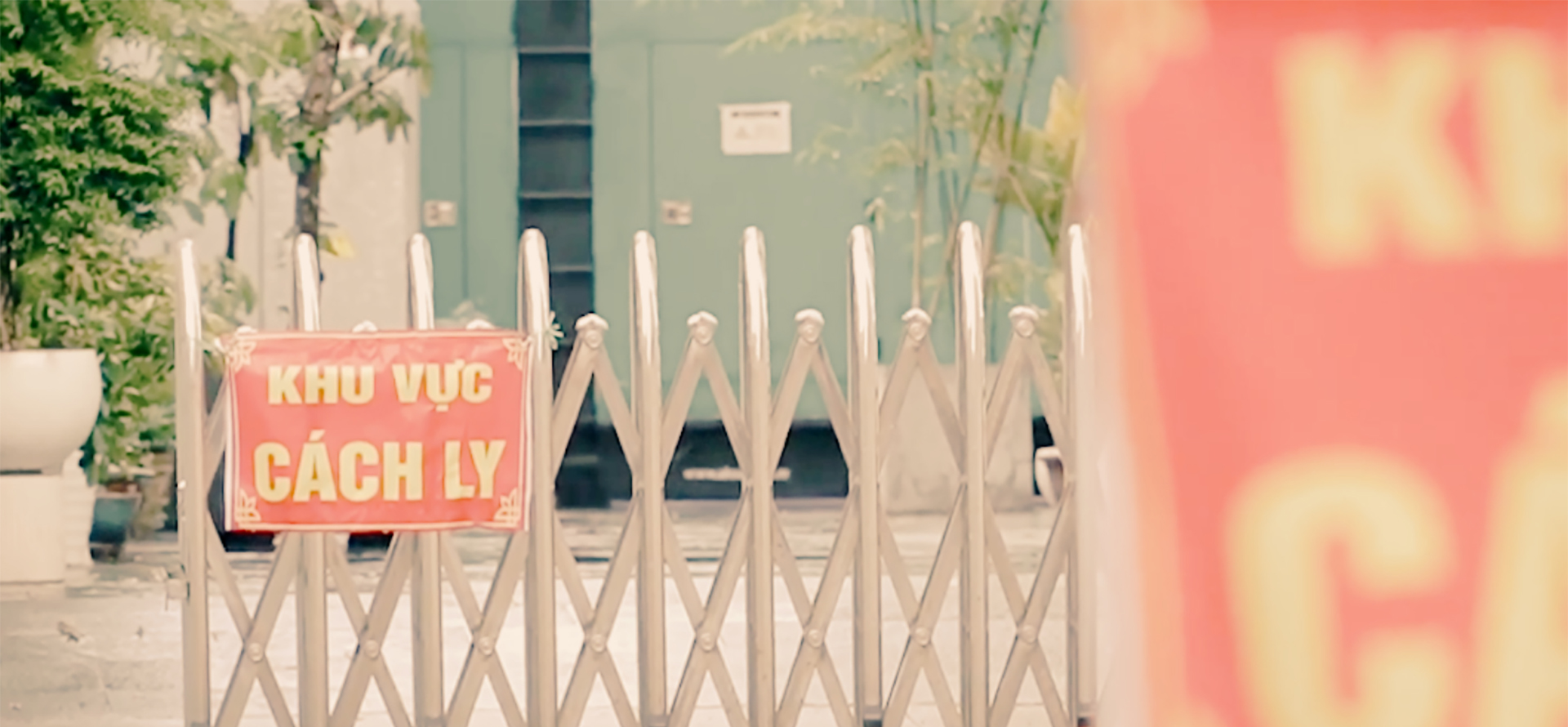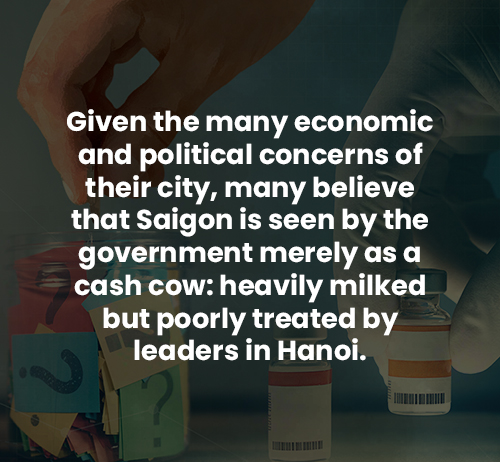Editor’s note: As with many other countries who successfully kept the virus at bay during the early stages of the pandemic, Vietnam is now seeing dangerous rise in COVID-19 cases. Saigon, the country’s economic powerhouse, was hit hard, and without much choice, was forced to barricade its businesses. To complicate the situation further, the people’s trust in their government has dropped precipitously, and they no longer trust that their leaders have their best interests at heart. Indeed, social media has played host to fiery critiques against the government, particularly as regards the country’s COVID-19 Vaccine Fund, which pools donations to purchase vaccines.
In this commentary, first published in The Vietnamese, writer and researcher Dan Nguyen breaks down the reasons behind this distrust and counts the ways in which the government has dug themselves further into the ground.
June 2021 saw Vietnam facing a massive COVID-19 outbreak, especially in Saigon (Ho Chi Minh City). By the end of the month, the number of cases remained relatively high. The implications of the government’s difficulty in containing COVID-19 in Saigon are considerable.
First, it is the largest city in Vietnam and the economic flagship of the country. Thus, placing the entire city of Saigon under lockdown is arguably not an option the government would want to entertain. This is evidenced by government officials still stubbornly clinging to their “double target” goal of attempting to suppress COVID-19 while at the same time maintaining economic activities. Time will tell if Vietnam will pull through or if this “double target” will turn into a “double failure.”
Second is the bitter history between Saigon, South Vietnam’s former capital during Vietnam War, and the Communists from Hanoi, which often resurfaces during times like this.
This history has cultivated a persistent lack of trust that many Saigonese harbor against the government leaders in Hanoi, and it is not surprising to see the Saigonese raise many angry comparisons. They speak of the government’s unfair treatment of Saigon, as they perceive that less support has been given to their city to cope with the outbreak than is the case with northern provinces.
Given the many economic and political concerns of their city, many believe that Saigon is seen by the government merely as a cash cow: heavily milked but poorly treated by leaders in Hanoi.
But this troubled past between the northern and southern regions is far from being the only reason for the lack of trust between the state and the people in Vietnam. With an unprecedented high number of daily cases and deaths, the Vietnamese have finally realized the urgency of acquiring vaccines. Yet the government’s COVID-19 Vaccine Fund, which calls for voluntary donations from individual citizens and the corporate sector for buying vaccines from overseas, has been met with strong criticism.

Amid a dangerous rise in COVID-19 cases, Saigon, one of the hardest-hit cities in Vietnam, has had no choice but to lock itself down. People in the city have grown increasingly distrustful of the central government, located in Hanoi, who they think just sees Saigon simply as a money-making machine.
Social media is rife with these objections, whose arguments boil down to: “I can’t trust the government with my money” or “I don’t trust the government to act in my best interest.” This lack of faith in the state is situated against a backdrop of multiple corruption scandals and a lack of transparency throughout the 2010s and the taxpayers’ increasing scrutiny of public spending in recent years, which has resulted in their frustration.
To wit, the government announced in late June its plans to build more public statues. A single statue, planned to rise in Thanh Hoa province, was estimated to cost approximately 255 billion dong (USD 11 million). As one social media user put it, the government could not have chosen a better time, or a better way, to add fuel to the fire.
In a country where anti-China sentiment runs high, the government’s approval and rollout of the Sinopharm vaccine has only worsened the situation. Skeptics of the Communist Party of Vietnam (VCP) and China have every reason to be worried about their money in the COVID-19 Vaccine Fund being used to purchase only the Sinopharm vaccine.
Given this perfect opportunity to speak truth to power, economists Vu Thanh Tu Anh (from the Fulbright School of Public Policy and Management) and Vu Tu Thanh (deputy regional managing director and Vietnam representative for the US-ASEAN Business Council), regrettably miss the point.
Tu Anh’s Facebook post on June 8 rightly explained that the COVID-19 Vaccine Fund is a way to correct “government failure.” Rather than accept the distrust and work towards solutions, he mainly focused on the technical workings of the government’s budgeting related to COVID-19.
 Likewise, Tu Thanh’s post on his own Facebook page, posted on the same day, defends the COVID-19 Vaccine Fund, stating that no vaccine manufacturer in the world can sell its vaccines to non-state actors at the moment, and that the government is still responsible for the lion’s share of the amount used to purchase them.
Likewise, Tu Thanh’s post on his own Facebook page, posted on the same day, defends the COVID-19 Vaccine Fund, stating that no vaccine manufacturer in the world can sell its vaccines to non-state actors at the moment, and that the government is still responsible for the lion’s share of the amount used to purchase them.
Mistaking politics for policy, both Tu Anh and Tu Thanh fail to address the issues underlying the criticisms of the COVID-19 Vaccine Fund: the deficit of trust between Saigon and the north, the lack of confidence of the Vietnamese people towards their government, the bitter irony of billions of Vietnamese dong going to statue-building amidst a pandemic, and concerns about China’s vaccine.
They also conveniently forget to address how the government should be held accountable for the “failure” Tu Anh mentioned, a failure of the government’s own making. As long as these issues are not dealt with, the deficit of trust will remain – and could worsen over time.
June 2021 has seen Saigon’s neighborhoods barricaded, one after another, as more and more new cases emerged. A local man poetically, but sadly, called the city, “Thương thành” (City of Pain). Meanwhile, other cities and provinces are watching nervously. This summer season will witness the Vietnamese government sweat as it runs short of both vaccines and the trust of many of its people. ●
This article was first published by The Vietnamese on June 30, 2021, and is being republished here by the Asia Democracy Chronicles with their permission.



















